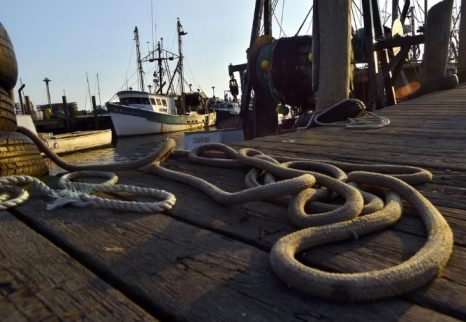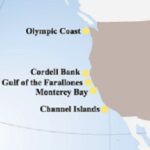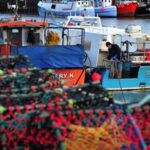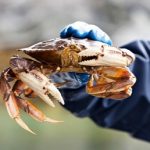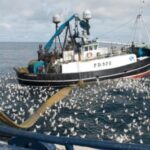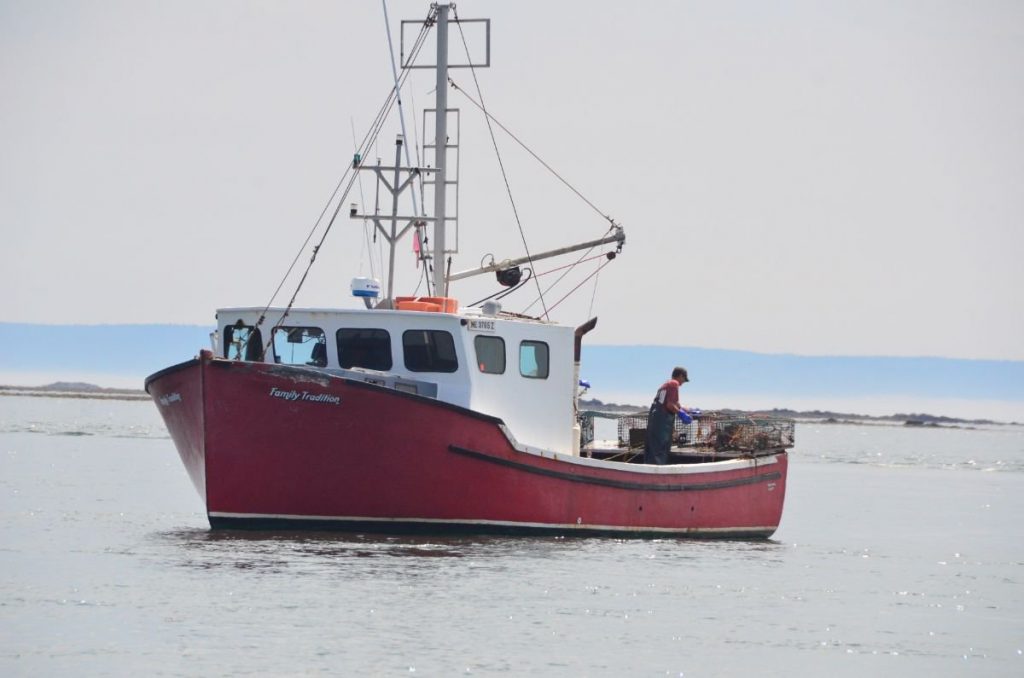Tag Archives: Atlantic States Marine Fisheries Commission
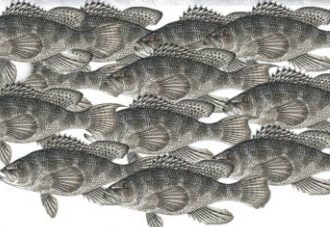
Fisheries commission to vote on NY black sea bass appeal
An interstate fisheries commission is scheduled to vote Thursday on New York’s appeal for a less stringent quota on locally abundant black sea bass. New York recreational fishermen and women could face a 12 percent reduction in the allowable catch for black sea bass this year under a federal mandate.,, DEC commissioner Basil Seggos said the state was “willing to go to the bear cage” to fight the planned reductions, including filing suit and going into noncompliance on the rules if the federal government did not act. The state has made similar demands to change New York’s share of the commercial fluke quota. >click to read<08:20
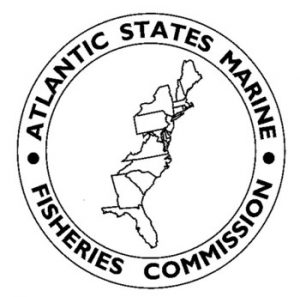
ASMFC Spring Meeting in Arlington, VA- April 30 – May 3, 2018
The Atlantic States Marine Fisheries Commission’s Spring Meeting will be April 30 – May 3, 2018 at The Westin Crystal City (Telephone: 703.486.1111), located at 1800 South Eads Street, Arlington, VA. Meeting materials are available on the Commission website at http://www.asmfc.org/home/2018-spring-meeting. Supplemental materials will be posted to the website on Wednesday, April 25, 2018. The meeting will be broadcast live on the internet, >click to listen<15:08
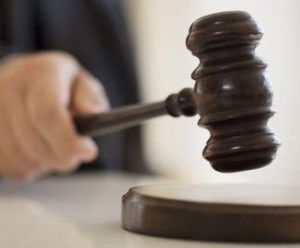
Lawsuit challenges fishing methods that could threaten right whales
An environmental activist is seeking a preliminary injunction to stop the use of vertical buoy fishing lines in Massachusetts waters to protect critically endangered North Atlantic right whales. In lawsuit filed in late February in U.S. District Court in Boston, conservationist Richard Maximus Strahan of Peterborough, New Hampshire, has sued the administrator of the National Oceanic and Atmospheric Administration, the assistant administrator of the Nation Marine Fisheries Service, the secretary of the Massachusetts Office of Energy and Environmental Affairs, the director of the state Division of Massachusetts Fisheries Service, the commissioners of the Atlantic States Marine Fisheries Commission and the Massachusetts Lobstermen’s Association, as a representative of its members. Strahan wants to stop the state’s lobster association members from further lobster pot and gill net commercial fishing operations unless they can scientifically demonstrate the endangered whales and sea turtles would not be killed or injured. >click to read<19:14
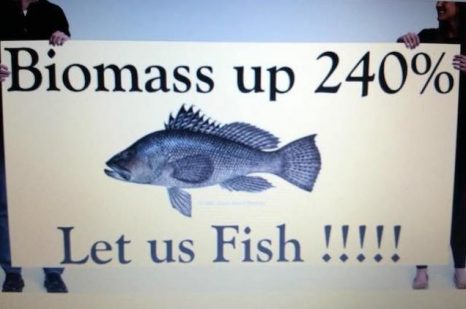
Black sea bass quota reduction for N.Y. has local lawmakers up in arms
The decision last month by the Atlantic States Marine Fisheries Commission to reduce New York’s black sea bass quota by 12 percent this year has anglers, state environmental regulators and local lawmakers up in arms. “This action discriminates against the State of New York. It would have a significant adverse effect on the Long Island economy,” State Senator Ken LaValle (R-Port Jefferson) and Assemblyman Fred Thiele (I-Sag Harbor) said yesterday in a joint statement. New York has joined Massachusetts, Rhode Island and Connecticut in an appeal,,, >click to read<09:12
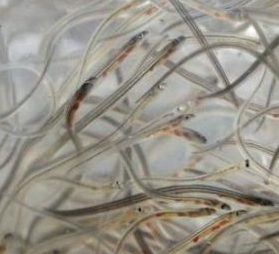
Price offered for Maine’s baby eels hits record high
Strong demand for baby eels from Maine, spurred by poor winter harvests elsewhere around the globe, has driven prices in the opening days of the state’s annual fishing season to unprecedented heights. The average price offered to fishermen for their baby eels, also known as elvers, since the season began at noon last Thursday is between $2,700 and $2,800 per pound, according to Maine Department of Marine Resources. That’s the highest average price range ever reported by the state agency and more than double the $1,302 per pound that Maine fishermen averaged over the course of the 2017 season. >click to read<09:07
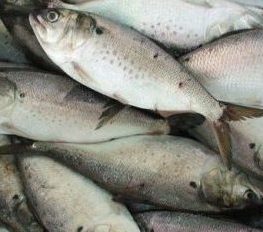
House kills fish bill: Does Virginia risk falling out of compliance with menhaden catch limits?
The House of Delegates on Tuesday killed a bill, opposed by an influential Northern Neck commercial fishing operation, that would have brought Virginia into compliance with new menhaden catch limits adopted last fall by a consortium of Atlantic states. Del. Barry Knight, R-Virginia Beach, made a motion to send his House Bill 1610, which had been sent down by Gov. Ralph Northam last month, back to committee, effectively spiking it for the year. In an interview, Knight said he did so in hopes that Northam’s administration and Omega Protein,,>click to read<20:42

Virginia: Heavily lobbied menhaden bill finally emerges
After weeks of intensive, behind-closed-doors lobbying, the Chesapeake Bay’s oily, inedible menhaden fish finally landed on the General Assembly’s plate. After more than 90 minutes of debate, the House Agriculture, Chesapeake and Natural Resources Committee decided by an 11-10 vote that the best answer was: sort of. Earlier in the session, it let die a measure that would enact the Atlantic States Marine Fisheries Commission’s purse seine quota cut, to 51,000 metric tons, into state law. On Wednesday, it approved a measure, introduced by special permission a month after the usual deadline, that would strike the current quota of 87,216 tons from state law and empower the head of the Virginia Marine Resources Commission to set a new purse seine quota of not less than 51,000 tons once the state had made its case to the commission that the quota cut was too steep. >click to read< 15:14

Islanders, officials discuss the dire state of river herring
Local fishermen, tribe and town officials, state and federal officials, and concerned citizens gathered Monday in the cavernous Wampanoag Tribe of Gay Head (Aquinnah) Community Center to discuss the troubling decline in the river herring population on the Vineyard, and along the eastern seaboard.,,, The decimation done by offshore fishing was a recurring theme in the discussion. “Ninety-five percent of the public doesn’t know how much harm the midwater trawlers are doing,” charter fishing captain, and Aquinnah Deputy Shellfish Warden Buddy Vanderhoop said. Vanderhoop said the trawlers off the New England coasts are also decimating groundfish stocks, such as cod, haddock, flounder, and pollock. >click to read< 13:19

Walter Kumiega announces Maine Senate run
Rep. Walter Kumiega (D-Deer Isle) has announced his candidacy for the Maine Senate in District 7 (most of Hancock County). Kumiega has been a member for the Maine House for the past eight years. He would replace Sen. Brian Langley, whose term expires this year. If elected to the Senate, Kumiega would continue to chair the Marine Resources Committee, a task vital to Hancock County. Kumiega also would seek to be the legislative commissioner to the Atlantic States Marine Fisheries Commission. >click to read< 11:51 
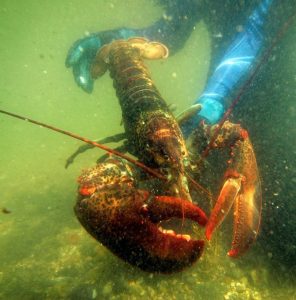
Benchmark study of lobsters begins
In 2015, data collected in a benchmark assessment of New England lobster stocks showed record-high abundance for the combined stocks of the Gulf of Maine and Georges Bank and record lows for the lobster stock of southern New England. Now, about three years later, the Atlantic States Marine Fisheries Commission is beginning preparations for the next American lobster benchmark assessment that is expected to be completed around March 2020. “We’re in the very early stages right now,” said Jeff Kipp, senior stock assessment scientist at the Arlington, Virginia-based ASMFC that regulates the Northeast lobster fishery. “The process will be mostly data-driven.” >click to read< 21:10
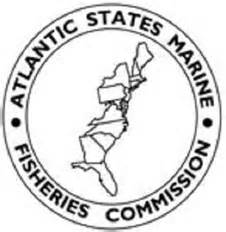
ASMFC to require Maine to collect catch reports from all lobstermen
An interstate fisheries commission voted Tuesday to require all licensed lobstermen in Maine to start filing catch reports within the next five years. Lobstermen in Maine, where currently only 10 percent of licensed lobstermen are required to file catch reports, overwhelmingly have been opposed to such a requirement. Other states, all of which have lobster fisheries smaller than Maine’s, already require 100 percent of active lobster harvesters to file daily catch summaries. Maine’s Department of Marine Resources also has opposed requiring all lobstermen to file reports. >click to read< 16:08

Maine Lobstermen reject big changes in harvester reporting rules
Ask any lobsterman about the details of where and how he catches his bugs — what kind of bait he uses, how deep he sets his gear, how many traps on a trawl, how long those traps soak between hauls — and you’re likely to get a fisheye, if not a poke in the nose, in response. Still, that’s the kind of information the Atlantic States Marine Fisheries Commission wants to collect from lobstermen and Jonah crab fishermen working in the Gulf of Maine and, no surprise, the idea is unpopular. >click here to read<08:59
Maine opposing push to require all lobstermen to report catch data – >click here to read<

Lobstermen speak out against proposal to have Maine’s entire fleet report data
Maine doesn’t require all of its lobstermen to share their fishing data, and they say reporting even 10 percent of the country’s largest lobster fishery is enough to give state and federal regulators statistically valid data. That’s the argument advanced by lobstermen, the Maine Lobstermen’s Association and the state Department of Marine Resources against a proposal for 100 percent reporting, at a hearing held Wednesday by the Atlantic States Marine Fisheries Commission. >click here to read< 11:09
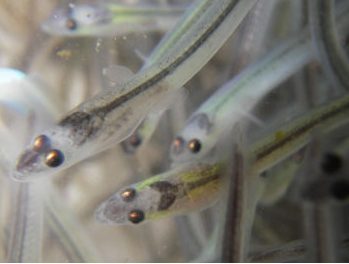
Tiny glass eel draws big money, political muscle and poachers
During the past few years, the GOP-controlled General Assembly has slashed the North Carolina Division of Marine Fisheries budget by about 40 percent, leaving departments understaffed and some employees bending under heavy workloads. At the same time, a review of more than 3,000 public documents shows that several elected and former state Department of Environmental Quality officials prompted what appears to be hundreds of hours of DMF time finding ways to justify obtaining a share of the federal glass eel quota to benefit just one company in Jones County — American Eel Farm, owned by Rick Allyn. click here to read the story 11:26
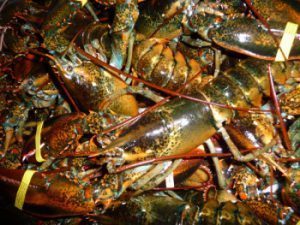
Lobstermen alarmed at prospect of sharing their secrets with regulators
For generations, Maine lobstermen have fiercely guarded their fishing secrets, telling almost no one how and where they fish or how much they haul up in their traps. But under a new proposal, these independent operators would have to share all the nitty-gritty details with regulators, like where they fish, how long they let their traps soak, the kind of gear they use and how deep they set it, and how much lobster they land. click here to read the story 08:35

Hearings set for changes to black sea bass fishing
Interstate fishing managers are holding hearings in East Coast states about a plan to change the rules about one of the Atlantic Ocean’s most popular recreational fisheries. The Atlantic States Marine Fisheries Commission is considering changing the way it manages the recreational black sea bass fishery. The commission says the proposed changes could alter the way it allocates harvesting limits for the fish. The hearings began on Wednesday in Lewes, Delaware. click here to read the story 13:31
Wall Township NJ Hearing on Lobster Draft Addendum XXVI/Jonah Crab Draft Addendum III – January 8, 2018 6:00 pm
 Lobster Draft Addendum XXVI/Jonah Crab Draft Addendum III hearings. (public comment accepted until 5 PM EST on January 22, 2018; send comments to [email protected] – Subject line: Lobster Draft Addendum XXVI) NJ Hearing – January 8, 2018 6:00 pm, Wall Township Municipal Building, Lower Level Community Room, 2700 Allaire Road, Wall Township, NJ, On the schedule, East Setauket, New York, on Tuesday; Scarborough, Maine, on Wednesday; Ellsworth, Maine, on Thursday; Portsmouth, New Hampshire, on Jan. 16; Narragansett, Rhode Island, on Jan. 17; Old Lyme, Connecticut, on Jan. 18; and Hyannis, Massachusetts, on Jan. 19 click here 11:40
Lobster Draft Addendum XXVI/Jonah Crab Draft Addendum III hearings. (public comment accepted until 5 PM EST on January 22, 2018; send comments to [email protected] – Subject line: Lobster Draft Addendum XXVI) NJ Hearing – January 8, 2018 6:00 pm, Wall Township Municipal Building, Lower Level Community Room, 2700 Allaire Road, Wall Township, NJ, On the schedule, East Setauket, New York, on Tuesday; Scarborough, Maine, on Wednesday; Ellsworth, Maine, on Thursday; Portsmouth, New Hampshire, on Jan. 16; Narragansett, Rhode Island, on Jan. 17; Old Lyme, Connecticut, on Jan. 18; and Hyannis, Massachusetts, on Jan. 19 click here 11:40
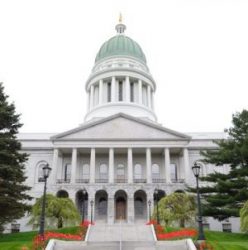
Maine: Bills to address commercial license glitches
The Legislature’s Joint Committee on Marine Resources will meet next Wednesday for hearings on three bills aimed at fine-tuning the state’s commercial fishing license system. One bill, LD1652, would allow the Department of Marine Resources to set up a limited entry system for shrimp fishermen in any year when the Atlantic States Marine Fisheries Commission sets the state’s northern shrimp landings allocation at less than 2,000 metric tons. Currently there is a moratorium on shrimp fishing in the Gulf of Maine.,,, The two other bills are more technical. click here to read the story 11:24
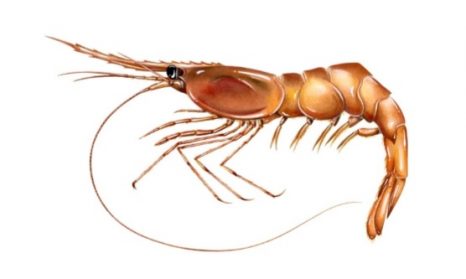
Request for Participant: 2018 Northern Shrimp RSA/Cooperative Winter Sampling Program – Massachusetts
The Atlantic States Marine Fisheries Commission (ASMFC) and the Massachusetts Division of Marine Fisheries (MA DMF) are seeking one Massachusetts (MA) trawl vessel/captain to collect northern shrimp samples in 2018 in accordance with the details below, fishing one trip per week for up to ten consecutive weeks. The participant will work with MA DMF staff to provide fresh shrimp samples from the vessel to the MA DMF Gloucester office each week. The participant will be allowed to land and sell up to 800 pounds of shrimp per trip. There shall be no other compensation. click here to read the press release 17:14 
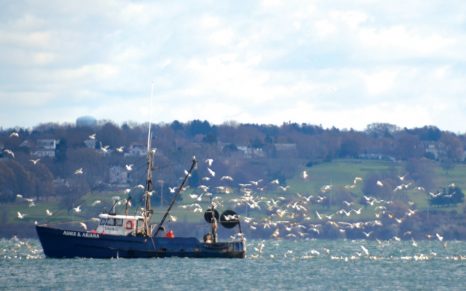
Ocean State goes to bat for menhaden
Menhaden aren’t the most popular fish in the Atlantic Ocean, but an increase in their catch limit could make the Narragansett Bay population more attractive to commercial fishermen. The Atlantic States Marine Fisheries Commission has ruled at least 0.5 percent of the quota of menhaden should be allocated to each state. That increased the limit in Rhode Island waters from 0.2 percent. The board also ruled to increase the amount of fish that could be caught in American waters annually by 8 percent, from 200,000 metric tons to 218,000 metric tons. Finally, it deferred a decision on implementing a new management standard for the species. click here to read the story 08:21

Shrimp stir up spat at commission meeting
For such tiny critters, northern shrimp can kick up quite a storm among fisheries regulators. Meeting in Portland last week, the Atlantic States Marine Fisheries Commission’s Northern Shrimp Section voted to continue the moratorium on shrimp fishing in the Gulf of Maine for another year. First imposed in 2013, the moratorium will remain in force for at least one more year. In an email, Department of Marine Resources spokesman Jeff Nichols said Commissioner Patrick Keliher “was very disappointed” with the proposal and voted against the research set-aside. click here to read the story 11:18
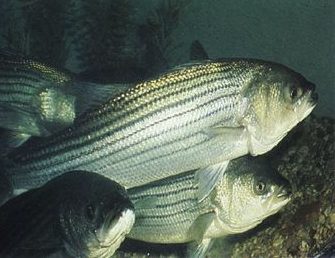
Ban on commercial striper fishing weighed
Stripers were pushed to the brink of extinction in the late-1970s but made a dramatic comeback. Now recreational anglers say the coveted fish again is struggling, and they’re lobbying Beacon Hill to implement new limits that include making the fish off-limits to commercial fishermen. One proposal, filed Rep. Walter Timilty, D-Milton, would limit commercial licenses to fishermen who can demonstrate they’ve caught and sold more than 1,000 pounds of striped bass annually over the last five years. Another proposal, offered by Rep. Thomas Stanley, D-Waltham, would phase out commercial fishing for striped bass by 2025 and establish fines up to $500 per fish for violators of new regulations. click here to read the story 19:29

UPDATED: Panel recommends reopening New England shrimp fishery – New England shrimp fishing closed for at least 1 more year
An advisory group is recommending regulators reopen New England’s long-shuttered shrimp fishery next year. An arm of the regulatory Atlantic States Marine Fisheries Commission will decide on Wednesday in Portland if there will be a fishery this coming season. The advisory board’s recommendation clashes with an opinion from the commission’s technical committee, which wants to keep the fishery closed. click here to read the story 14:15
New England shrimp fishing closed for at least 1 more year – click here to read the story 17:15

Opinion: Menhaden decision sticks to science-based fisheries management
This month, the Atlantic States Marine Fisheries Commission updated its menhaden management plan, taking into account the increasing menhaden stock. The commission was heavily lobbied by the fishing industry and by a coalition of environmentalists and sport-fishing interests led by a unit of the Pew Charitable Trusts. The Menhaden Fisheries Coalition wanted to increase its allowable catch by about 40 percent, to 280,000 metric tons per season. The environmental coalition wanted to leave more fish in the ocean, which the MFC figured would cut the industry’s catch by about a quarter, to 147,000 tons. click here to read the story 08:12

Trump Administration Dives Into Fish Fight
An unprecedented Trump administration decision over the summer that overruled an interstate fishing commission has drawn the ire of critics who worry that keeping a healthy and viable supply of flounder in the Atlantic Ocean is being sacrificed to commercial profits. While the fight over fish largely has been out of the public eye, it has implications for Maryland and other coastal states. In July, Secretary of Commerce Wilbur Ross overruled a recommendation by the Atlantic States Marine Fisheries Commission finding New Jersey out of compliance with proposed 2017 harvest limits of summer flounder along the Atlantic coast. click here to read the story 15:28

NOAA/NMFS Seeks Comments on Proposed Rulemaking for American Lobster Fishery
NOAA Fisheries seeks comments on the American lobster control date, changes to lobster trap gear marking requirements, and allowing substitute vessels to fish lobster traps for federally permitted but inoperable vessels. In accordance with the Atlantic States Marine Fisheries Commission’s Addenda XXI and XXII to Amendment 3 of the Interstate Fisheries Management Plan for American Lobster, NOAA Fisheries may select January 27, 2014, or another date, as a control date for the lobster fishery, depending on public comment and input from the Commission. click here to read the press release 12:53
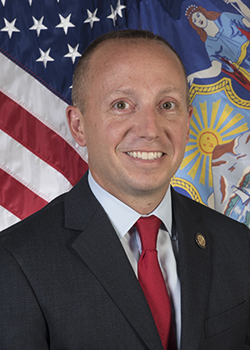
DEC Commissioner Basil Seggos says NY commercial fishermen ‘getting a raw deal’
New York commercial fishermen are “getting a raw deal” in federal fisheries quotas, and the state will follow through on a lawsuit early next year if meetings in December don’t fix the problem, the state’s top fisheries official said last week. At a meeting at the East Hampton Public Library on Thursday, Basil Seggos, commissioner of the state Department of Environmental Conservation, listened to two full hours of complaints about state and federal regulations and management of fisheries, including restrictive quotas, inaccurate fish-population data, difficulty in getting and transferring permits, and “Gestapo”-like tactics of federal observers on local fishing vessels. click here to read the story 10:10
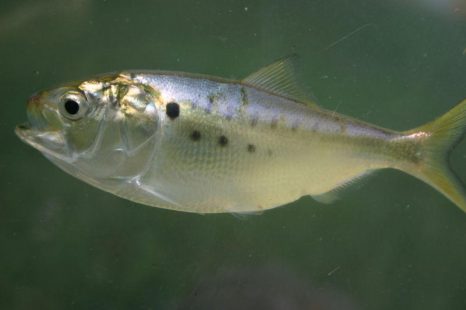
Environmentalists Are Wrong About Menhaden Fishery
Fishing companies are at odds with Rhode Island environmental advocacy groups over proposed changes for the menhaden fishing industry, Changes to the Interstate Fishery Management Plan for Atlantic Menhaden are up for a vote at the Atlantic States Marine Fisheries Commission meeting in Maryland this Monday and Tuesday. Meghan Lapp, fishery liaison for the Rhode Island-based Seafreeze Ltd, said that temporary plan shouldn’t be implemented because it’s based off of science that isn’t applicable to menhaden. click here to read the story 12:19
Decision coming Monday on Menhaden management
 The Atlantic States Marine Fisheries Commission will decide on a new management plan for Atlantic menhaden at a meeting near Baltimore on Monday. Fishermen and environmentalists have a lot riding on how much of the resource is set aside for fishing, and how much is left for wildlife predators. Known as Amendment 3, the new rule will set the future course for managing the forage fish species eaten by many other fish, birds like osprey, dolphins and whales. click here to read the story Atlantic Menhaden Management Board – The Board will meet to consider approval of Amendment 3 to the Interstate Fishery Management Plan for Atlantic Menhaden. click here to read 3 sets of meeting materials 10:35
The Atlantic States Marine Fisheries Commission will decide on a new management plan for Atlantic menhaden at a meeting near Baltimore on Monday. Fishermen and environmentalists have a lot riding on how much of the resource is set aside for fishing, and how much is left for wildlife predators. Known as Amendment 3, the new rule will set the future course for managing the forage fish species eaten by many other fish, birds like osprey, dolphins and whales. click here to read the story Atlantic Menhaden Management Board – The Board will meet to consider approval of Amendment 3 to the Interstate Fishery Management Plan for Atlantic Menhaden. click here to read 3 sets of meeting materials 10:35






